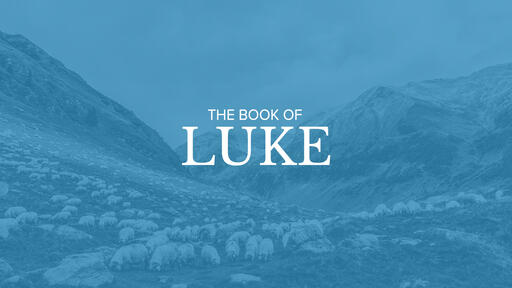One Lost Sheep
THE MESSIAH AND HIS PARABLES
Chapters 11-15
1. Chapter 11 – How To Pray and Avoid bad Examples
• What is the Lord’s Prayer and how does it keep our focus on praying to our Heavenly Father? (11:1-4).
• What examples does Jesus use to show the importance of prayer and why we should be persistent? (11:5-13).
• Once again the religious leaders are questioning Jesus authority and power because of the miracles He is preforming. Jesus counters their argument with an example of a house being divided. What are the consequences when a group is divided? (11:14-28).
• What lesson was Jesus teaching when He uses the parable of the “Sign of Jonah?” (11:29-36).
• The Pharisees were the religious leaders of the Jewish nation but Jesus condemns them more than any other group. Jesus being God incarnated, knows the hearts of men, what were some of the things Jesus accused the Pharisees of? (11:37-54)
2. Chapter 12 - The Messiah’s Warnings
• Jesus warned that if a person was going to believe in Him and follow Him that he would face persecution. What were some of the things Jesus said a believer should do when he faced persecution? (12:1-12).
• Jesus uses a parable about a rich man and how his land produced him great wealth, what was the purpose of this parable and what message or lesson was Jesus trying to convey to the listener/reader? (12:13-34).
• Jesus warns us that we need to be ready for His return at any time. What example does Jesus use to illustrate this important warning? What does it mean to be a faithful and sensible servant? (12:35-48)
• What did Jesus mean that He had a baptism to undergo that that He was distressed until it was accomplished? (12:49-59)
3. Chapter 13 – The Messiah’s call to Repentance
• What does repentance mean, and what happens when a person does not genuinely repent? (13:1-9)
• Do you think God is limited by our interpretations of His Laws? Why or why not? (13:10-17).
• What is the meaning of the parable of the “Mustard Seed?” (13:18-21).
• What principle was Jesus teaching when He taught in order for someone to go to heaven they must “strive to enter through the narrow door?” (v. 24). Why was Jesus upset over Jerusalem? (13:22-35).
4. Chapter 14 – The Messiah Teaches through Parable
• The religious leaders constantly hounded Jesus about His healing on the Sabbath, yet they were never able to refute His reasons for healing. Why do you think they persisted? Is there an example you can think of that people resist or resent Jesus for today? (14:1-6).
• What is the meaning of the “Parable of the Guests?” (14:7-15).
• What is the meaning of the “Parable of the Dinner?” (14:16-24)
• Jesus proposed some very harsh requirements of those who would choose to follow Him, do you think these requirements are too hard? What do you think He means when He made theses harsh requirements? (14:25-35).
5. Chapter 15 – The Messiah Seeks the Lost
• What the meaning of the “Parable of the Lost Sheep?” (15:1-7).
• Why was the woman so happy when she found her lost coin in the “Parable of the Lost Coin?” What significance is it to us? (15:8-10).
• In the parable of the “Prodigal Son” much focus is put on the son who left home, but the father had 2 sons; and the son who stayed home was just as bad a problem as the son who left. The end of the story seems to be left open ended, why do you think Jesus intended by telling this story this way? (15:11-32).
Email questions or comments to jerry.nelson@liveoakbc.net

